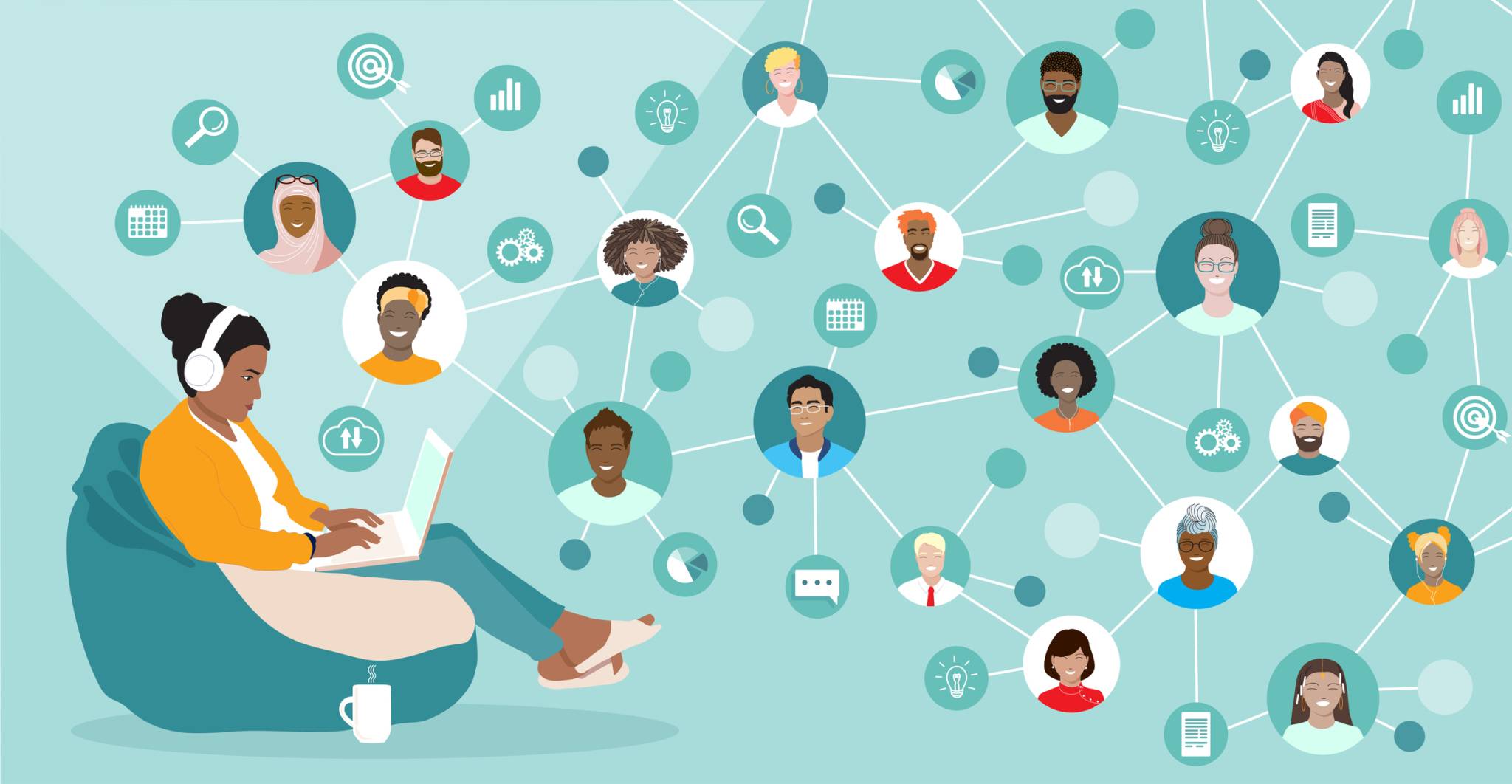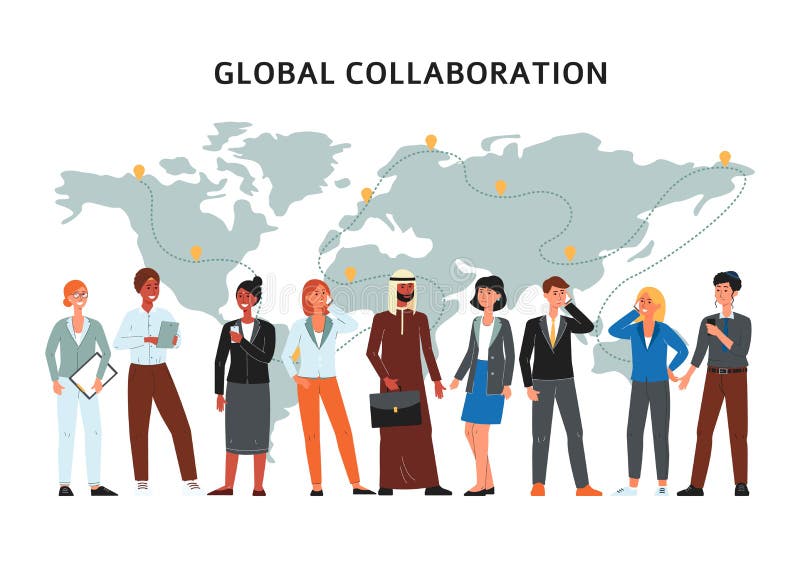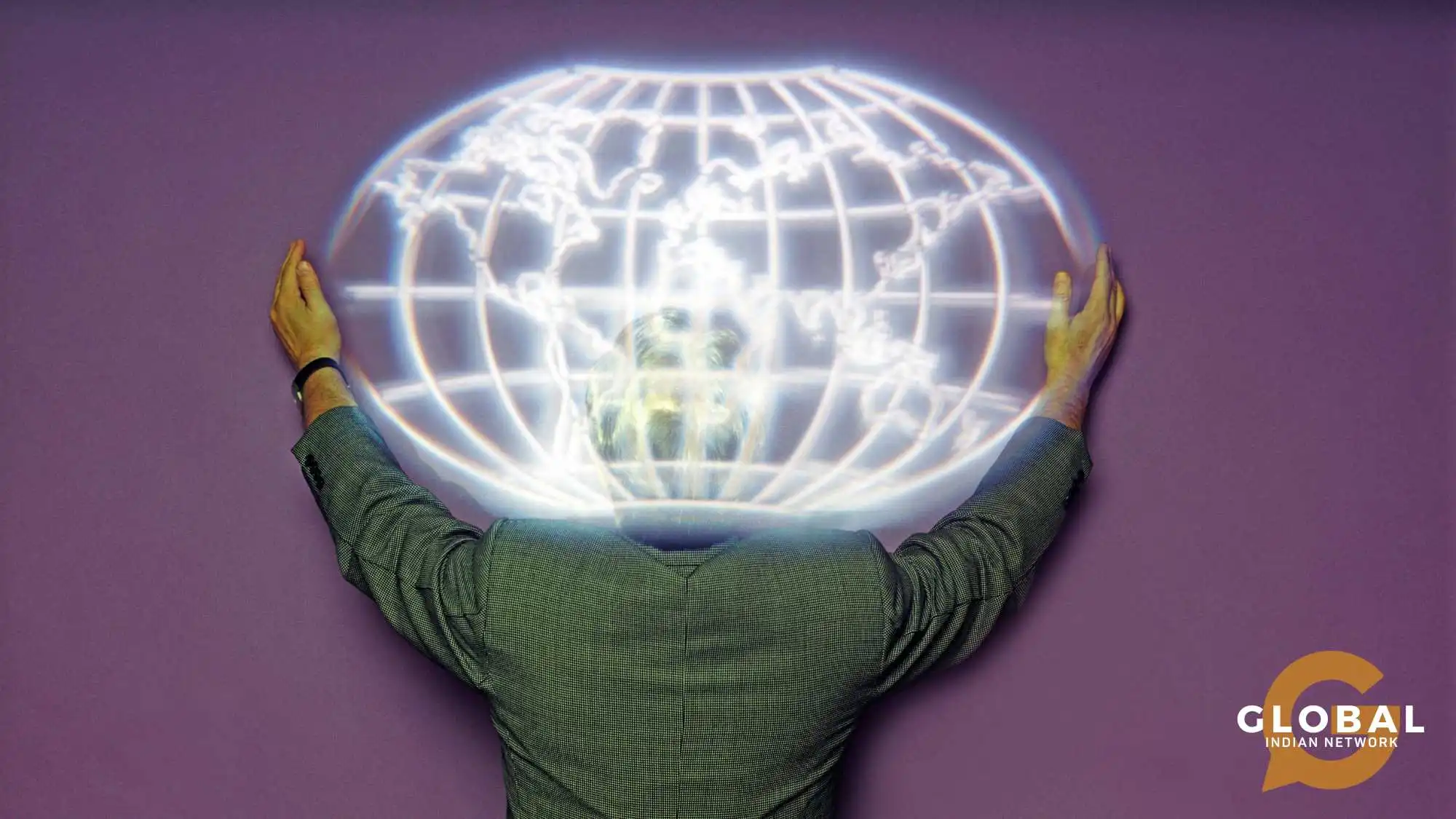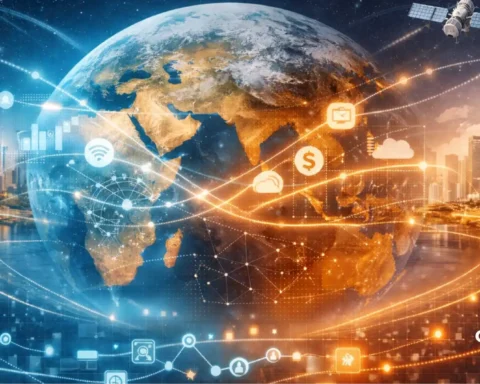Communication is the foundation for the thriving globalisation that we see in our world today.
The advancement of communication technology, from the telegraph to the 21st-century internet, has played a crucial role in building strong connections and defying geographical and cultural boundaries.
This strong connectivity has enabled rapid information exchange between individuals, business organisations, and governments from around the globe, ultimately leading to massive global development.
This blog discusses the fascinating relationship between communication and globalisation and how they drive political and social change, build international communities, foster collaboration, and drive economic development.

Table of Contents
Communication and Globalisation: Interdependent Factors Shaping the Modern World

Communication is synergistically connected to globalisation, which is transforming the connectivity of our modern world.
Globalisation, in simple terms, is the increasing interconnectedness between economies, cultures, and societies across the globe. This phenomenon has been amplified by the advancements in communication technology over the years.
However, looking at it the other way round, increased globalisation has also increased the demand for better communication channels, with extended and expanded business operations and cross-cultural communication across borders.

Communication is definitely the basis for globalisation, being the messenger of information, ideas, and knowledge. The transformation of communication technologies has not only allowed personal communication with loved ones in foreign countries, but it has also enabled effective international communication, building a global marketplace and increased collaboration and innovation.

Communication and Globalisation: Key Drivers of Political and Social Change

The relationship between globalisation and communication has had a massive impact on the political and social scenario of the world.
The rapid spread of information through digital communication channels such as social media has encouraged citizens from various countries to question and challenge authoritative bodies and initiate democratic movements. Social media platforms have become powerful tools for strengthening public opinion that comes from a large group of digital users with various cultural backgrounds.
News outlets also have a global reach with the power to spread information rapidly, sculpt public opinions, and hold leaders accountable.

Additionally, globalisation has brought about a harmonious connection between various groups of people, leading to a more interconnected and interdependent world. It has also broken down cultural boundaries and increased cross-cultural understanding.
Moreover, it has also advanced the growth of transnational social movements, assisting activists in connecting and collaborating. These movements have already acknowledged a wide range of issues, such as human rights and climate change, by using communication technologies to amplify their message and mobilise support.

Communication and Globalisation: Overcoming Barriers and Building Global Communities

Another way in which globalisation and communication complement each other is how essential communication is in overcoming the challenges of globalisation. Conflicts and disagreements are bound to arise when there are differences in language and culture due to differences in communication styles.
To combat these issues, intercultural communication, which involves the skills and knowledge to interact effectively with people from different cultural backgrounds, becomes essential.
Globalisation has also brought about multinational corporations and forums dedicated to aiding communication and cooperation between nations. These platforms allow governments and businesses to discuss major global challenges that affect our world.
Communication and Globalisation: Fostering Cultural Understanding and Collaboration

Besides the significant economic development through globalisation, communication plays a crucial role in boosting cultural exchange and collaboration.
The many forms of media, especially the film industry, have played a pivotal role in sharing cultural values and practices with other nations. This has increased appreciation of diverse cultures and significantly reduced culture-based stereotypes.
Additionally, globalisation has facilitated the transfer of knowledge in various fields such as education, healthcare, and technology. Collaborative research and development initiatives have become quite common, bringing innovative advancements benefitting society as a whole.
The rise of social media and other digital platforms has also transformed cultural exchange. Online communities have played the most vital role, connecting people with shared interests regardless of cultural background. This has also led to a better understanding of other cultures and their values.
However, it is essential to be mindful of the potential for misinformation and the spread of stereotypes through these channels.

Conclusion
The continuous interplay between communication and globalisation has completely transformed the modern world, pushing economic development, cultural exchange, and political and social landscapes.
The advancement of communication technology has been invaluable in overcoming geographical barriers and building a more interconnected and interdependent global community.
However, this synergistic relationship is not without its challenges. Issues such as misinformation and cross-cultural misunderstandings are bound to occur.
Nevertheless, through mutual understanding among individuals, we can foster a global society and create a future in which everyone reaps the benefits of globalisation.
FAQs
What does globalisation mean?
Globalisation, in simple terms, is the increasing interconnectedness between economies, cultures, and societies across the globe. This phenomenon has been amplified by the advancements in communication technology over the years.
What is the importance of globalisation?
Globalisation has played a crucial role in increasing intercultural connectivity, improving quality of life, and thriving economies.
Who is the father of globalisation?
Peter Sutherland is regarded as the father of globalisation.










[…] export sector has been an important contributor to its economic growth. In the 2023-24 fiscal year, the total value of merchandise exports reached US$459.65 billion, an […]
[…] livelihoods are essential for achieving long-term economic growth and stability. By promoting sustainable agriculture, natural resource management, and alternative […]
[…] and independent businesses play a vital role in any country's economy. From boosting economic growth to creating employment opportunities to reducing the carbon footprint of the world, small […]
[…] A British colony, Kenya has a diverse climate with tropical warmth in coastal regions, arid deserts in northern deserts, and cooler, temperate zones in central highlands. With over 55 million people and 40 ethnic groups, Kenya gained independence in 1963 and has undergone political and economic transformations, focusing on governance and economic growth. […]
[…] real estate investments, enterprise projects, or government bonds. The CIP program aims to boost economic growth by attracting foreign capital, improving infrastructure, and creating job opportunities within the […]
[…] get on-the-ground perspectives on the matter, which has large-scale consequences for the country's economic growth and, specifically, its […]